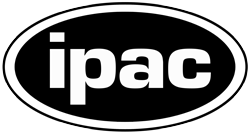Roman Galaxy Redshift Survey Project Infrastructure Team Code of Conduct
The team will adhere to this code of conduct. It provides clear guidelines on (1) Expected conduct; (2) Addressing discrimination, harassment, bullying, and scientific misconduct; (3) Procedures for the resolution of conflicts and complaints; and (4) Potential sanctions for violating the code. Each team member is required to positively affirm their agreement to this Code of Conduct.
Inclusion and respect
All team members should strive to treat everyone encountered in their professional life with respect, to solicit and listen to diverse views, and to treat such opinions with civility. They should be alert to behavior from themselves or others that would act to exclude or disregard other members in work-related activities.
Discrimination
Team members should promote equality of opportunity and treatment for all their colleagues, regardless of (alphabetically) age, disability, ethnicity, gender, marital status, nationality, physical appearance, political affiliation, pregnancy, race, religion, sexual orientation, and status as a caregiver (including as a parent).
Harassment and Bullying
The team will not tolerate verbal, nonverbal, physical, or sexual harassment or bullying of any kind. Unwelcome attention, threatening or abusive language, and insulting, hurtful, or disrespectful comments, are strictly banned from the team. Members must make every effort to ensure that words and actions communicate respect for others.
Members further shall not recklessly or maliciously injure, or attempt to injure, directly or indirectly, the reputation and career prospects of others.
Scientific Misconduct
All members should demonstrate personal and professional integrity in all matters. Fabrication of data or selective reporting of data with the intent to mislead or deceive is unethical, unacceptable, and fraudulent. The same applies to any kind of plagiarism (including internal communications), and the appropriation of unpublished data or research results from others without permission and attribution. It should be recognized that honest errors are an integral part of the scientific enterprise. It is not unethical to be wrong, provided that errors are promptly acknowledged and corrected when they are detected. The team members are required to adhere to the APS guidelines on scientific integrity (link to https://aps.org/policy/statements/guidlinesethics.cfm).
Communication and Privacy
All internal team communications should not be forwarded outside of the team without written permission from all involved. All communications within the team meant to be “Private” or “Confidential” should be marked as such. Redistributing internal team emails outside of the team without permission, or forwarding emails marked as “Private” or “Confidential”, are considered breaches of the Code of Conduct.
A person desiring an even higher degree of privacy for the correspondence can add the following sentence to emails: “The content of this email is confidential and intended for the recipient(s) specified in message only. It is strictly forbidden to share any part of this message with any third party, without written consent of the sender.”
Resolution of Conflicts and Complaints
A team member with complaints can consult their institutional ombudsperson (or counselors with similar responsibilities), who will confidentially provide options. If requested by the team member, the Executive Committee of the team will try to mediate and resolve conflicts and complaints. If that is insufficient, the case can be referred to the appropriate officials at the relevant institutions.
Potential Sanctions
Depending on the severity of the violation of the Code of Conduct, the appropriate potential sanction(s) will be applied, including removal from team meetings, exclusion from team projects, and removal from the team.
Limitations of this Code
In no circumstance does this Code of Conduct supplant laws or institutional policies or requirements to which team members or their home institutions are subject, including reporting requirements these individuals or entities may have. It is understood that team members may report allegations of violations to their home institutions, government agencies, or local authorities for investigation per applicable laws, regulations, and policies.
This Code of Conduct shall not be construed as creating any employer-employee, joint venture, partnership, duty, trust, obligation to pay, or other relationship between the Roman GRS PIT, member institutions, grantors, funding institutions or agencies, or members, including the Roman GRS PIT Executive Committee. Although the Roman GRS PIT encourages all members to abide by this Code of Conduct, the Roman GRS PIT remains a voluntary member body, and members and their affiliated institutions waive any and all claims, liabilities, or damages against the Roman GRS PIT, member institutions, grantors, funding institutions or agencies, home institutions, and Roman GRS PIT members involved in implementing the Code of Conduct arising from the enforcement of, or failure to enforce, this Code of Conduct.
Acknowledgement
We have used the LSST DESC Code of Conduct as a starting point for this document, and have reused some passages.
